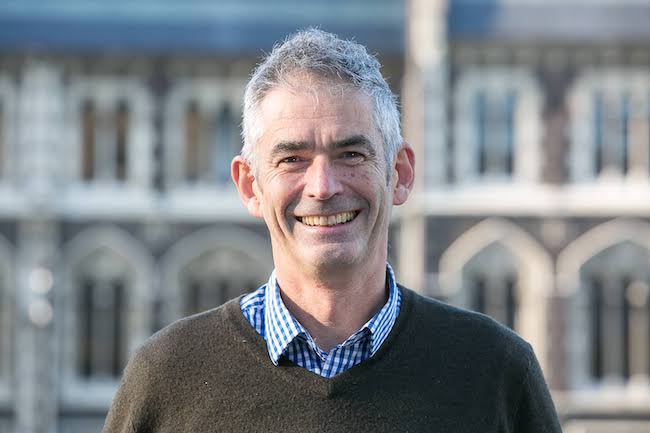
Professor Parry Guilford and the Cancer Genetics Laboratory have been looking for a drug treatment that will inhibit the growth of inherited stomach cancer. Part of this search will now be developing a system that will deliver chemotherapy directly to tumours growing in the stomach.
Conventional cancer treatments are administered via the blood, which exposes the whole body of the patient to the toxic drugs, and therefore causes debilitating side effects.
If a drug can be administered through the surface of the stomach, directly targeting any tumours growing there, many of the side effects could be mitigated.
The NZ Health Research Council has recently announced that it will provide $1.2 million over three years for the project, on which Prof Guilford is collaborating with Dr Allan Gamble and Dr Jessica Fairhall of the Otago School of Pharmacy.
“We are developing drugs that will be used to kill early stage cancers in people with an inherited stomach cancer risk. Because this risk is lifelong, it will be necessary to repeat the treatment every few years,” Prof Guilford explains.
“It is therefore very important that the drugs don't cause serious side effects. By delivering straight to the stomach, we can get the desired effect without most of the drug side effects.”
Prof Guilford is the principal investigator of the Cancer Genetics Laboratory, which is housed within the Department of Biochemistry, and is a key part of the University of Otago's Centre for Translational Cancer Research.
Among his many achievements, he has helped to track down the cancer-causing gene in a Māori family with a strong history of stomach cancer, and helped to start the biotech company Pacific Edge Ltd, which makes a diagnostic testing kit for bladder cancer.
You can read more about Professor Guilford's research in this article “Life Saver” https://www.otago.ac.nz/hekitenga/2017/otago672613.html, published in He Kitenga when he received the University of Otago's Distinguished Research Medal in 2017.
You can also read more about the Centre for Translational Cancer Research and Pacific Edge Ltd.